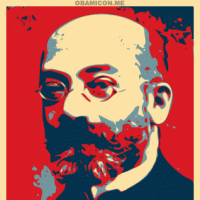Tin nhắn: 89
Nội dung: English
Frakseno (Xem thông tin cá nhân) 17:47:22 Ngày 18 tháng 2 năm 2009
jan aleksan:This one obviously comes from french and means... bag ass

Senlando (Xem thông tin cá nhân) 20:18:29 Ngày 18 tháng 2 năm 2009
Frakseno:Tokkin's "Bag Ends" was supposedly inspired from "cul-de-sac".jan aleksan:This one obviously comes from french and means... bag ass
ceigered (Xem thông tin cá nhân) 11:34:06 Ngày 19 tháng 2 năm 2009
Ironchef:On the subject of faucets, Krano seems to come from Kran (Polish) and Kraan in Dutch, (from Anglo-Saxon Hranich) which is a Crane (the bird, known as a Gruo in Esperanto). When you look at an (old fashioned) bathroom tap/faucet and then look at the shape of a Crane, you can see that the two look similar.Interesting how they are all related, and how (well atleast for the Germanic languages) the vowel length tends to stay long (Crane, Kraan etc). Small world this is...
German goes with Wasserhahn (water hen -- maybe again, shape related etymology), but I noticed Kran also can mean Crane (the bird) in German too.
Rogir (Xem thông tin cá nhân) 12:47:40 Ngày 19 tháng 2 năm 2009
vejktoro (Xem thông tin cá nhân) 21:02:44 Ngày 19 tháng 2 năm 2009
Rogir:Good thing we Germanics conquered such a large part of the world, isn't it?Yes, I`m sure everyone feels blessed.
ceigered (Xem thông tin cá nhân) 07:34:40 Ngày 20 tháng 2 năm 2009
vejktoro:Reminds me of the old view that before the British Empire came into being, the world was uncultured, illiterate and lacked the superior utensils and weapons of the west. Ironically, when the Europeans came in contact with the Japanese, the Japanese thought the Europeans were uncultured, illiterate (they couldn't read ideograms), and lacked the skills of the superior chopsticks and katana-swordsmanship (in reality, Katana and European broad swords are just as useful). And I'm sure even further back that the celts must of thought the romans and greeks were inferior for some reason (and visa versa), ktp.Rogir:Good thing we Germanics conquered such a large part of the world, isn't it?Yes, I`m sure everyone feels blessed.
This also relates to the original topic - we tend to dislike languages for reasons which, come to think of it, aren't really rational, yet we still can't bring ourselves to like them.
jan aleksan (Xem thông tin cá nhân) 10:08:53 Ngày 20 tháng 2 năm 2009
[ the concentration of different languages is very high in New Guinea, and most of people is polyglot]
Miland (Xem thông tin cá nhân) 11:37:14 Ngày 20 tháng 2 năm 2009
ceigered:we tend to dislike languages for reasons which, come to think of it, aren't really rational..We have the luxury of taste if we are lucky - in food if we are in fortunate circumstances, and in languages if we don't need to learn other languages than our first. But in this world, non-speakers of English have a real disadvantage, so they have to make a big effort. One reason for Esperanto.
ceigered (Xem thông tin cá nhân) 12:04:06 Ngày 20 tháng 2 năm 2009
jan aleksan:When english people came in New Guinea, people there thought that englishmen was less clever, because they had only 1 language.That's quite funny actually, even with all their technology etc, they only spoke one language
[ the concentration of different languages is very high in New Guinea, and most of people is polyglot]

Miland:We have the luxury of taste if we are lucky - in food if we are in fortunate circumstances, and in languages if we don't need to learn other languages than our first. But in this world, non-speakers of English have a real disadvantage, so they have to make a big effort. One reason for Esperanto.True, although at this rate I can see English speakers having to learn different local variants in order to understand each other properly some time in the next century or two.
Rogir (Xem thông tin cá nhân) 13:28:27 Ngày 20 tháng 2 năm 2009





